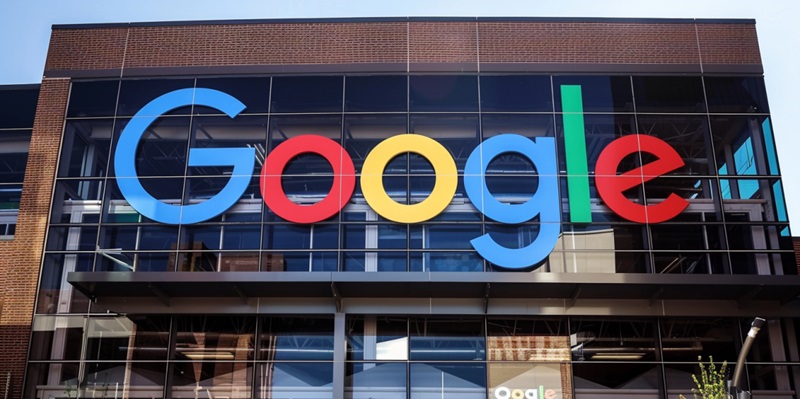As the artificial intelligence revolution marches on, OpenAI stands out as a beacon of innovation in Silicon Valley. Poised to enter the world of search engines, OpenAI’s potential launch of an AI-powered search platform signifies a bold challenge to the longstanding dominance of traditional search engines such as Google. This article explores the significance behind OpenAI’s move and evaluates the possible repercussions on the future landscape of online search.
The Rise of AI in Silicon Valley and OpenAI’s Position
The Emergence of Generative AI
The tech sphere is buzzing with advancements in generative AI—a cutting-edge domain in which OpenAI has already made significant strides. Their GPT (Generative Pretrained Transformer) models, including ChatGPT, have disrupted numerous tech sectors, underscoring OpenAI’s capabilities. This innovation spurred excitement regarding how OpenAI will shape the future. Silicon Valley, a hotbed for technological advancement, closely watches as OpenAI takes generative AI to new heights, with many intrigued by the transformative implications it may harbor for various industries.
Integrating ChatGPT with Bing Search
OpenAI’s groundbreaking collaboration with Microsoft has seen the integration of ChatGPT with Bing Search functionality. The fusion has resulted in an enhanced search experience, enabling users to receive information with citations and sources directly through ChatGPT’s interface. This innovative feature signals OpenAI’s readiness to transition to a full-fledged search engine, setting the stage for OpenAI to offer a more integrated, AI-driven search service that could redefine user expectations and industry standards.
The Strategic Move into Specialized Search
Breaking Down the Logic of Expansion
OpenAI’s deliberate expansion into the development of a standalone search platform seems timely. As users gravitate towards more sophisticated search solutions, OpenAI is aptly positioned to fulfill this rising demand. They can leverage their prowess in generative AI to craft a search experience that not only answers queries but understands context and intent, potentially capitalizing on gaps left by conventional search engines.
Differentiating from the Existing Offerings
While platforms like Perplexity have infused AI into search, and Google has responded with its own Search Generative Experience, OpenAI may carve out its niche by concentrating on distinct user needs not yet fully addressed. A dedicated AI search engine could center on delivering tailored results, focusing specifically on contexts like academic research or complex problem solving where users seek depth over breadth in information retrieval.
OpenAI’s Search Engine: Implications for User Experience
Specialization versus Expansion
OpenAI could advocate for a more specialized search engine, aimed at distinct use cases, diverging from ChatGPT, which currently focuses on broader capabilities like content creation and conversational assistance. Such specialization may enhance user experience by catering to specialized demands, thereby offering a more focused and efficient search process for intricate queries that require deeper insights and understanding.
Tackling the Challenge of Diversity in Offerings
Mirroring Apple’s product strategy, OpenAI may offer a spectrum of AI-powered tools, each marginally different to target distinct market segments. While this could provide users with tailored choices, it risks complicating the user experience with an overabundance of options. Striking the right balance between variety and simplicity will be crucial to avoid overloading consumers and potentially driving them to seek more streamlined services elsewhere.
The Publishers’ Dilemma and OpenAI’s Preemptive Measures
Addressing Content Publishers’ Concerns
The shift towards AI-driven search engines poses a threat to traditional content publishers who are reliant on Google for traffic referrals. Publishers are concerned about losing visibility and revenue as AI-generated summaries could reduce the need to visit original sites. OpenAI, anticipating such challenges, has begun forging partnerships with major publishers to license content, aiming to integrate publishers’ content within the framework of ChatGPT and maintain a symbiotic relationship.
The Future of Search and Content Synthesis
Further down the road, AI’s ability to index and synthesize information may revolutionize search engines. By summarizing and critically evaluating content, these new AI search tools could substantially enhance the quality and efficiency of information discovery. This paradigm shift challenges the status quo established by Google, promising a future where search engines are more intelligent and interactive than ever before.
Seizing the Opportunity of a Perceived Decline in Search Quality
OpenAI, a trailblazer within the tech realm, is poised to shake up the current search engine paradigm with its foray into AI-driven search solutions. As traditional giants like Google may soon face stiff competition, OpenAI prepares to unveil a search platform that leverages the power of artificial intelligence. This initiative is not just a bold step for OpenAI but a potentially transformative moment for the search industry. It embodies the cutting edge of Silicon Valley’s relentless pursuit of innovation, signaling a shift in how users might engage with online information retrieval in the future. The consequences of this move could be far-reaching, promising a new era in digital search experiences. OpenAI’s venture into search engines thus marks a pivotal juncture, heralding changes that may redefine the very fabric of the internet’s search infrastructure.

